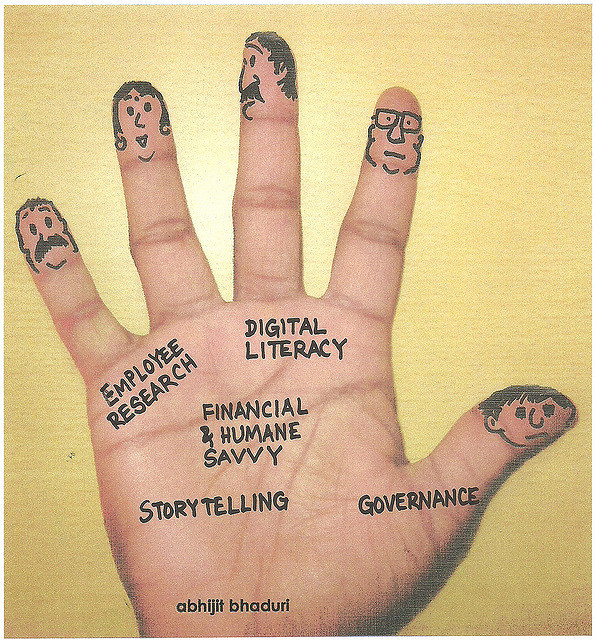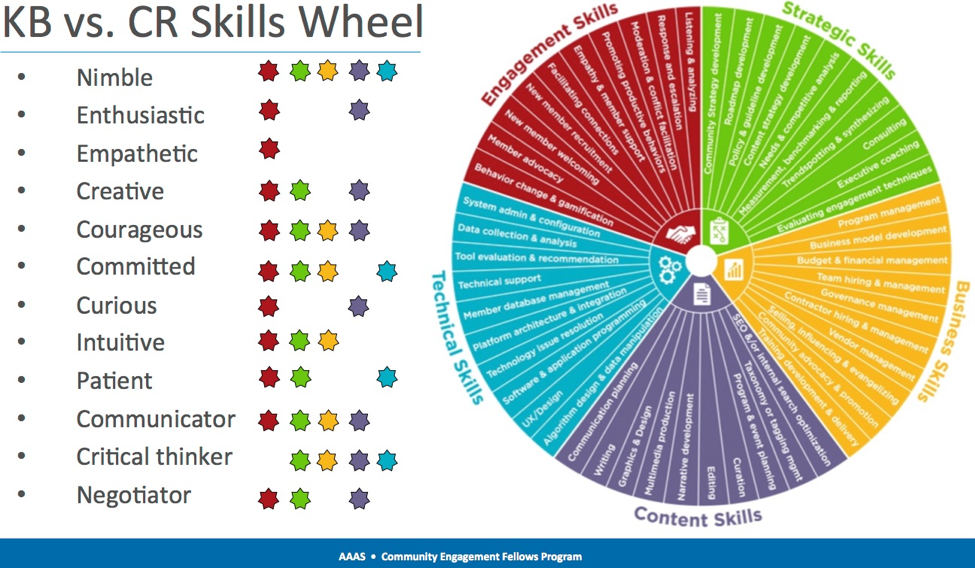We’re now mid-way through the first year of the AAAS Community Engagement Fellows Program (CEFP), funded by the Alfred P. Sloan Foundation. The first cohort of Fellows is made up of 17 scientific community managers working with a diverse range of scientific communities. As they continue to develop their community engagement skills and apply some of the ideas and strategies from their training, the Fellows will report back on the Trellis blog, sharing their challenges, discoveries, and insights. Today, in part two of a two part series on knowledge brokering, Fellow Elisha Wood-Charlson breaks down the similarities and differences between community managers and knowledge brokers.
Posted by Elisha Wood-Charlson, Data/Research Communications Program Manager for the Simons Collaboration on Ocean Processes and Ecology

In part 1 of this series, I explored the concept of a knowledge broker by defining the role/trait and describing some of the best practices. For this section, I wanted to explore the potential for shared skills between knowledge brokers and Scientific Community Managers (SCMs).
Several resources, including the Canadian health system, JRC Science Hub, and community management organization CMX, describe skills, training and personality qualities for those in knowledge brokering and community management roles. I’ve summarized them as follows:
Skills/Training: Interpersonal (e.g., negotiation), research synthesis (e.g., critical thinking), evaluation, mediation, and communication.
Qualities: Nimble, enthusiastic, empathetic, creative, courageous, committed, curious, intuitive, patient.
Where do these categories fall within a formalized depiction of CM skills, like the Community Roundtable Skills Wheel? Here is a slide from my mid-year CEFP presentation:

It appears that SCMs are inherently acting as knowledge brokers within, and for, their communities. However, these highly valued traits are not well captured in our current CM categories. Pervasive yes, but not prominent. As one of the CEFP project teams, C3 (Catalyzing Cultural Change) is working to better describe the roles, skills, and character traits of SCMs. Our goal is to empower those currently breaking trail in this career path, provide support and justification for their journey, and bring hope and inspiration for those keen to follow.
Scientific community management – enabling scientists with a shared vision or mission to engage in more effective collaborations – is a hugely rewarding position, but as with all new fields, it comes with challenges. Together, as a community of SCMs, we stand strong and forge on.
Mahalo to AAAS for bringing the 2017 CEFP fellows together!
You can catch up on part 1 of this series here and find all of the CEFP Fellows’ posts here.